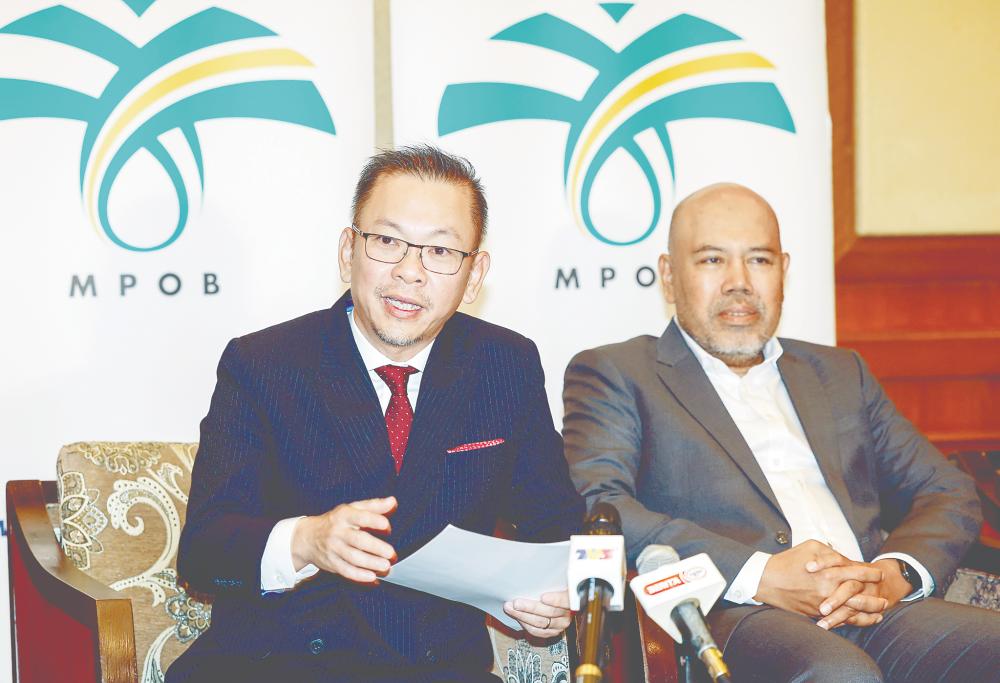KUALA LUMPUR: The average crude palm oil (CPO) price surged by 9.7% to RM4,179.50 per tonne last year from RM3,809.50 per tonne in 2023, according to Plantation and Commodities Minister Datuk Seri Johari Abdul Ghani.
Likewise, he said, the monthly average CPO price reached its peak at RM5,119.50 per tonne in December 2024 while the daily average price peaked at RM5,333.50 per tonne on Dec 6, 2024.
“This significantly increased total oil palm products export revenue by 15.1% to RM109.3 billion in 2024 from RM94.9 billion in 2023,” he said in his speech at the opening of the Palm Oil Economic Review and Outlook Seminar 2025 here today, which was delivered by Deputy Minister Datuk Chan Foong Hin.
Johari said total exports of palm oil and palm-based products for 2024 rose to 26.66 million tonnes compared to 24.49 million tonnes in 2023, an increase of 8.9% or 2.17 million tonnes.
The top six export markets for Malaysian palm oil products were India, China, the European Union, Kenya, Türkiye and the Philippines, with 8.57 million tonnes or 50.7% of total Malaysian palm oil exports for 2024.
The Malaysian palm oil industry produced 19.3 million tonnes of crude palm oil in 2024, an increase of 4.2% compared with 18.55 million tonnes in 2023, Johari said.
The outlook for the palm oil industry in Malaysia remains positive, as supply and demand remain stable with the expected recovery from labour shortages.
At a press conference, Chan said the Ministry of Plantation and Commodities aims to focus on mechanisation and automation to overcome the tight labour supply for the palm oil industry.
He said the industy needed to have a transition period in overcoming the issue as the goverment does not plan to rely on foreign labour.
“Over the long term, we should aim for more mechanisation and automation. In Budget 2025, the goverment has also provided incentives to encourage industry players to adopt more mechanisation and automation, so that’s the plan going forward.”
Chan noted that the need for an exception on foreign labour quota depends on the urgency and the industry's feedback. “The one-time exception for the quota was given for around 60,000 workers last year, but for this year it depends on the industry feedback whether it’s urgent or not.”
Meanwhile, according to a combined statement, the Malaysian Palm Oil Board has partnered with the Netherlands embassy and the British High Commission in Malaysia to launch the National Initiative for Sustainable and Climate-smart Oil Palm Smallholders 2 (NISCOPS 2).
NISCOPS is a government-to-government initiative that focuses on improving smallholders’ livelihood and tackling climate change by adapting to the climate, protecting forests and reducing carbon emissions.– Bernama









